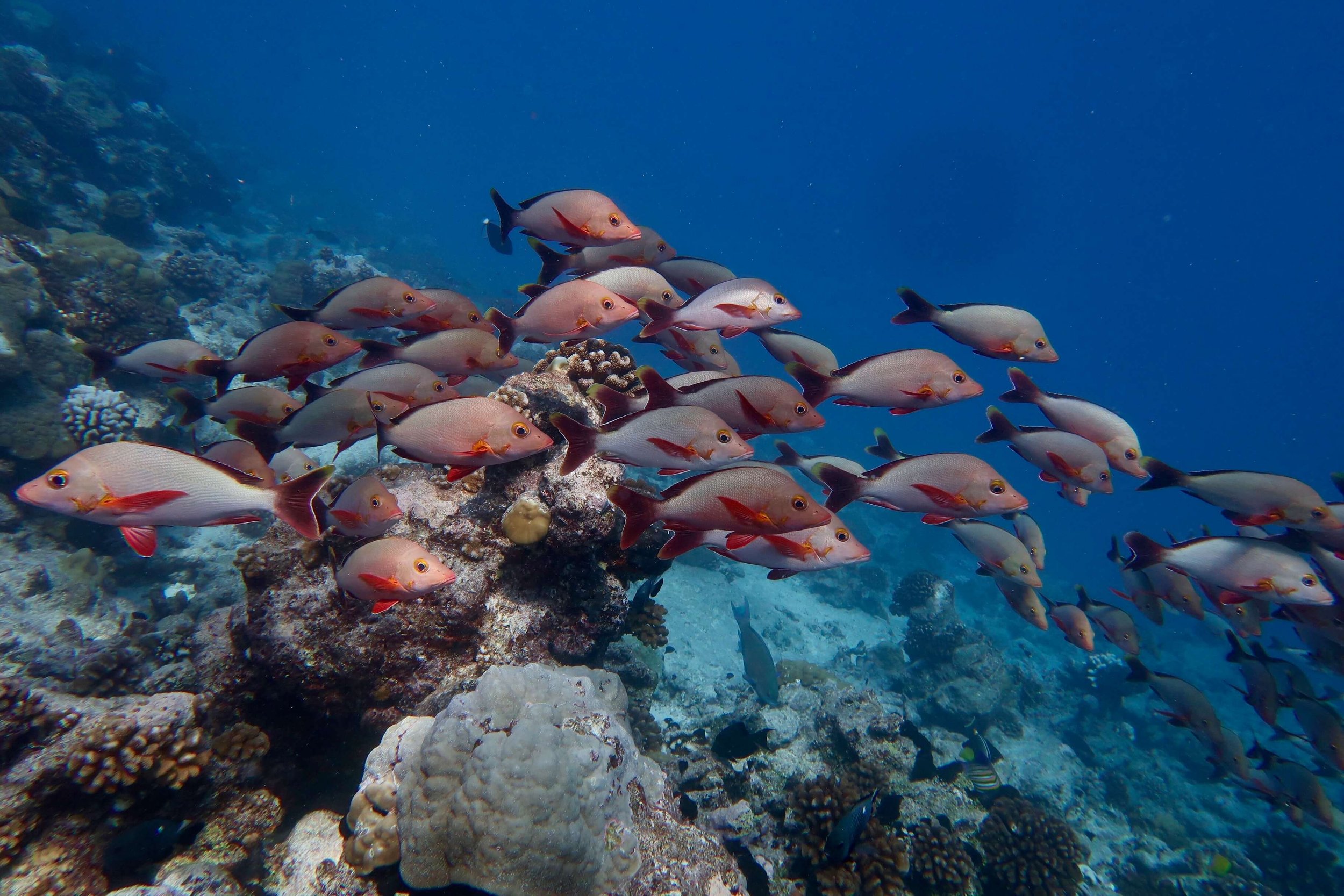Picky Eaters Needed
Credit: Jordan M. Casey
Delicate coral reef ecosystems are among the world’s most fascinating and productive places. They also are under threat from pollution and a warming ocean. Now new research finds yet another way that reefs could be more vulnerable than previously understood.
An international team with University of Texas at Austin marine scientists studied coral reefs around the globe and found that networks of predator fishes and their prey were remarkably similar from one place to the next. In particular, all of the ecosystems had predator fishes that tend towards picky eating.
The stomach contents of fish species found in six coral reef systems around the world revealed that the vast majority of reef fishes that hunt are very choosy about the species they prey on. Rather than opportunistically feeding on anything they can find, they specialize, meaning that without them, the ecosystem would have a marked overabundance of certain other species down the food chain. The researchers concluded that the loss of even a single larger fish species could jeopardize the entire ecosystem.
Coral reefs provide critical habitat for thousands of species that sustain economies and provide for the diets and livelihoods of millions of people.
“Coral reefs can only provide these key ecosystem services if food webs remain intact,” said Jordan Casey, one of the researchers on the study and an assistant professor of marine science at UT’s Marine Science Institute.
“The researchers concluded that the loss of even a single larger fish species could jeopardize the entire ecosystem.”

